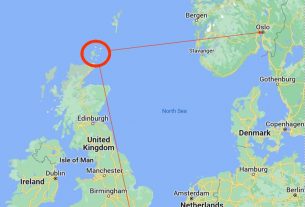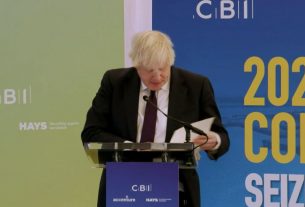Italian journalist Cecilia Sala has been detained in Tehran, as confirmed by Italy’s foreign ministry. Sala was apprehended by Tehran police on December 19 while reporting in the Iranian capital. The Italian government is actively working with Iranian authorities to understand the circumstances of her detention and to secure her release.
The Italian embassy in Tehran has been closely involved in monitoring Sala’s condition. Ambassador Paola Amadei visited her in prison, ensuring that she is being treated appropriately. Sala has also been allowed to make two phone calls to her family, offering them some reassurance during this challenging time.
Sala, an experienced journalist for Il Foglio, was in Iran on a legitimate visa, intending to provide insights into the country’s complex social and political climate. Her arrest has raised serious concerns about press freedom and the safety of journalists in Iran. Il Foglio’s editor, Claudio Cerasa, expressed outrage, stating, “Journalism is not a crime. Let’s bring Cecilia Sala home.” He emphasized that Tehran’s actions represent a direct affront to the values of freedom and human rights upheld by the West.
Evin Prison, where Sala is reportedly being held, has a notorious reputation for detaining political dissidents and journalists. Despite this, Cerasa reassured readers that the decision to go public with Sala’s story was made after consulting Italian diplomatic officials, who confirmed that it would not impede ongoing negotiations for her release.
Sala is also a contributor to Chora Media, where she produces in-depth podcasts. Before her arrest, she had conducted interviews and created episodes highlighting the struggles and resilience of Iranian women. Chora Media initially refrained from publicizing the detention at the request of Sala’s family and the Italian government, hoping to resolve the situation discreetly.
Italian Defense Minister Guido Crosetto emphasized the complexity of the negotiations, explaining that resolving such matters with Iran requires strategic diplomatic efforts rather than public outrage. He assured the public that the entire government is committed to securing Sala’s freedom through high-level engagement.
Sala’s recent Instagram posts reveal her dedication to storytelling, particularly focusing on the voices of women she met in Iran. Her arrest underscores the increasing risks journalists face in regions where freedom of expression is under threat.
The case has drawn widespread attention, with advocates for press freedom calling for Sala’s immediate release. Her work reflects a deep commitment to shedding light on untold stories, making her detention a stark reminder of the challenges journalists endure to report the truth.
This incident has sparked calls for international solidarity to protect journalists operating in restrictive environments. As negotiations continue, the Italian government remains steadfast in its efforts to ensure Sala’s safe return.
The situation highlights the broader issue of press repression in Iran, where journalists and activists frequently face persecution. Sala’s detention is a poignant example of the critical need for global advocacy to defend press freedom and uphold the safety of those who risk their lives to uncover the truth.




